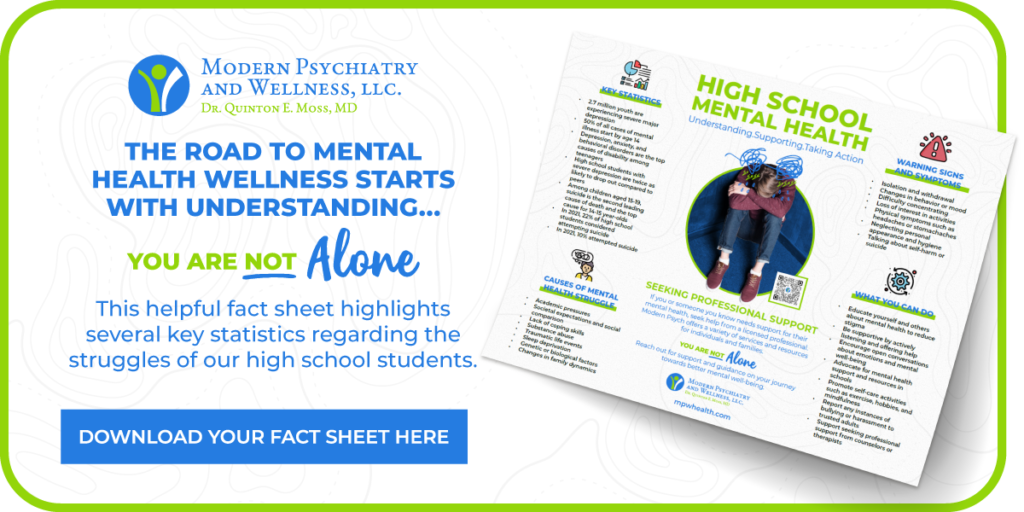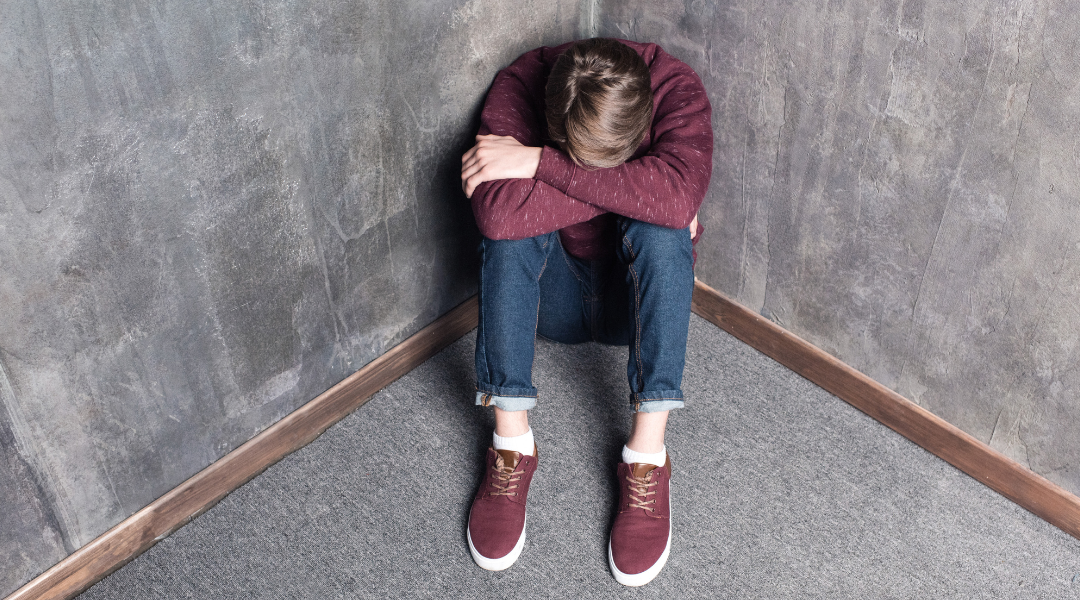The teenage years are a period of immense growth and change, both physically and emotionally. The transition from childhood to adulthood is marked by significant transformations, as teenagers navigate their identities, relationships, and responsibilities. However, amidst the exciting milestones and new experiences, some teenagers may face a more difficult path, grappling with mental health issues, such as teenage depression. Let’s go over the causes, signs, and ways to support teenagers who may be facing this challenge.
Causes of Teenage Depression
Teenage depression is a complex condition that can have multiple contributing factors. While it is important to remember depression is not solely caused by one specific event or circumstance, understanding the following factors can shed light on its development:
- Biological Factors: Genetics and family history can play a role in the development of depression. Teenagers with a family history of depression or mood disorders may be more vulnerable to experiencing them themselves.
- Environmental Factors: Traumatic events or significant life changes—such as the loss of a loved one, divorce, abuse, or relocation—can trigger or exacerbate feelings of depression in teenagers. Chronic stress or ongoing conflicts within the family or at school can also contribute to the development of depression.
- Psychological Factors: Low self-esteem and a negative outlook on life can increase the risk of depression in teenagers. Adolescents who struggle with identity formation, body image issues, or feelings of inadequacy are more susceptible to developing depression.
Signs of Teenage Depression
Although symptoms can vary from person to person, some common signs of teenage depression include:
- Persistent Sadness: Feeling consistently sad, empty, or hopeless for an extended period.
- Loss of Interest: Losing interest in activities or hobbies that were previously enjoyable.
- Sleep and Appetite Changes: Significant changes in sleeping patterns, such as insomnia or excessive sleep, as well as noticeable changes in appetite and weight.
- Lack of Energy: Feeling fatigued or lacking energy, even after minimal physical or mental exertion.
- Irritability and Anger: Frequent mood swings, irritability, or feeling easily frustrated.
- Social Withdrawal: Avoiding social interactions, isolating oneself from friends and family, and withdrawing from previously enjoyed social activities.
- Physical Complaints: Experiencing unexplained physical symptoms such as headaches or stomachaches.
Seeking Help and Treatment Options
If you, a friend, or another teenager in your life are experiencing depression, seeking professional help is a crucial first step to recovery. Mental health professionals will provide a comprehensive assessment and determine an appropriate treatment plan. Common treatment options include:
Psychotherapy
Talk therapy, such as cognitive-behavioral therapy (CBT) or interpersonal therapy (IPT), is a form of psychotherapy where a trained professional helps individuals share their thoughts and feelings, identify negative thought patterns, develop coping strategies, and improve their mental health.
Medication
In some cases, medication may be prescribed to help manage depressive symptoms. A psychiatrist will help determine the most appropriate medication and dosage for the individual.
Lifestyle Changes
Encouraging healthy habits, such as regular exercise, proper nutrition, sufficient sleep, and stress management techniques, can all contribute to improving mood and overall well-being.
Modern Psych: Treating Teenage Depression
Teenage depression is a complex and challenging mental health issue requiring understanding and support to make a difference in the lives of affected teenagers. If you’re the parent or friend of a teenager who’s struggling with depression, it’s important to be there for them and to be supportive. If you yourself are struggling, look to your friends and family for support (no matter your age)! Encouraging open communication, understanding, and providing reassurance can make a significant difference in their recovery.
At Modern Psychiatry and Wellness, we help patients recognize the causes and signs of their depression, provide professional help, and access to appropriate treatment options. If you or a loved one is dealing with depression, Modern Psych is here to help. Reach out to Modern Psych today to get the help you need and take the first step towards recovery.





